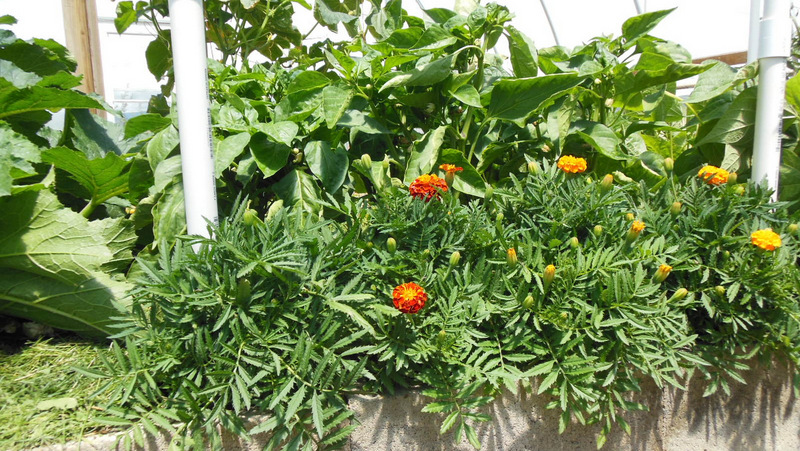High Performance Gardening
The garden of the future needs to be productive and accessible for busy people. Our traditional gardening systems are difficult to maintain, have poor yields and millions of garden chores. The average vegetable gardener in 2008 produced an average of half a pound per square foot of their garden. We have found in our High Performance Garden, the Abundance Garden, produces an average of 5.8 pounds per square foot. This only took an average of 15 minutes a day to grow 100’s of pounds of produce.
We are in need of sustainable produce that is highly nutrient dense. Lynn Gillespie has spent over 30 years of her life studying how to create a garden that is more productive. Her family farm has 20,000 square feet of gardens that feeds many families, serves several restaurants and a couple stores. After decades of study and practice she developed the High Performance Garden.
What makes the High Performance Garden so different from other gardens?
Well, there are two basic gardening styles, chemical and organic. Chemical gardening was introduced back in the late 1800’s. This gardening style uses chemical fertilizers to feed the plants. The problem with this method is that that plants don’t get the proper nutrition and the beneficial microbes that feed the plant are killed. The chemical pesticides, herbicides and fungicides also harm the beneficial microbes (found in a healthy soil food web) that feed the plants. Chemical gardens are time consuming and create inferior, nutrient deficient produce.
Organic gardening works in harmony with nature’s systems to create healthy soil food webs. This allows for the plants to feed the soil and the soil to feed the plants, allowing for the highest quality produce. A garden can take two forms, in a raised container or row gardening. A High Performance Garden is always in a container garden. A row garden is planted in the native soil (which may or may not be the right type for the plants). This style mimics the long rows that are needed to run farm implements through the soil to till. About 99% of the soil in row gardens are not the right type of soil for the plants and this causes the plants to be stressed, have low nutrients and yield poorly. Native soil will also contain many weed seeds that are just waiting for you to water and feed them. Row gardens are usually very large and ½ of the space is wasted so the rototiller can fit up the aisles.
A normal container garden can be grown in any container. This could be a pot, a raised bed or a cinder block bed. Container gardens typically have a pre-made soil mix instead of native soil. These gardens tend to be small and require very few tools to create and maintain. The plants usually have more nutrition and can be planted closer together.
A High Performance Garden is an organic container garden that has been super-charged. The High Performance gardener mimics nature’s systems in the garden to create the best possible results. Some of the techniques used in this system are the use of:
- Mulch to control weeds and feed beneficial microbes
- Succession Planting to increase yields
- Specific Planting Patterns to utilize all the space
- Vertical Growing to save even more space
- Adding Micro Nutrients so the plants create the most nutrient dense produce with the help of the beneficial microbes.
All of these techniques and more are used to make gardening easier. Once you know what to do you can have a garden that will feed 2-3 people and it only takes 15 minutes per day to take care of it.
The first High Performance Garden education created was the Abundance Garden Course. This is the comprehensive online course for the highest producing high performance garden for your backyard. The course was closely followed by the High Performance Gardening eBook, the Leafy Greens Container Garden Course and the free High Performance Garden Community. These are just the beginning of the High Performance Garden education! If you would like to explore the world of High Performance Gardening we recommend reading the listed articles below or exploring the High Performance Garden Community.
- The 12 Techniques for the Most Productive Organic Garden
- What is a High Performance Garden
- The Possibilities Garden
Until next time, may your garden be easy, fun, productive and always organic!




